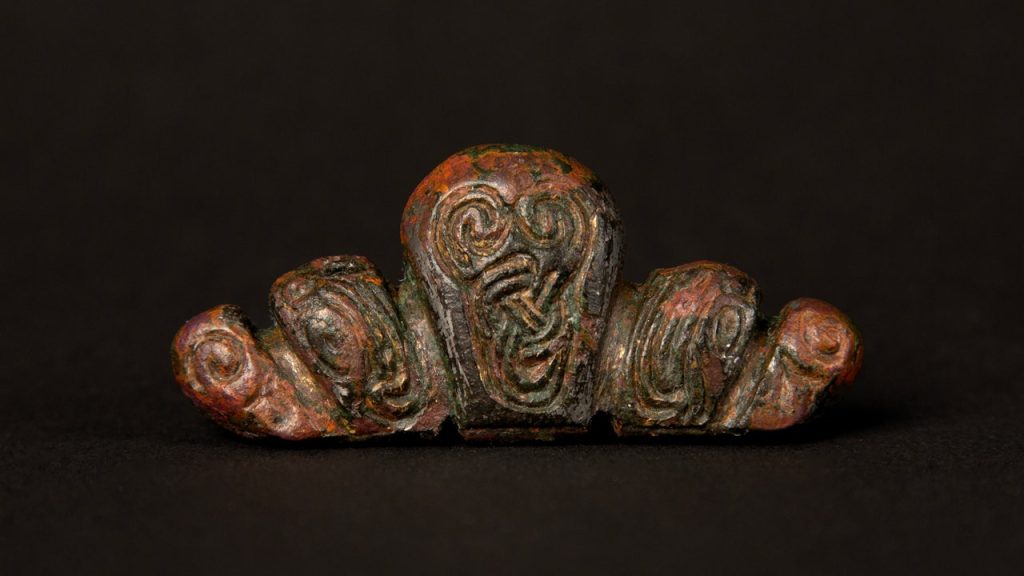A Viking Relic Unearthed: Unraveling Friesland’s Connection to the Viking World
The serene farmlands of Witmarsum, Netherlands, recently yielded an extraordinary treasure, a relic of a bygone era that sheds light on the intricate network of the Viking Age. On May 3, 2024, metal detectorist Sander Visser, while exploring the tranquil fields, stumbled upon an artifact that resonated with historical significance – a fragment of a 10th-century Viking sword pommel. The discovery, hailed as a "first of its kind" in the Netherlands, has ignited excitement among historians and archaeologists, promising to unveil further insights into the Viking presence in Friesland.
The unearthed pommel fragment bears distinctive decorative elements, notably the wild boar heads adorning each end. These symbolic motifs, deeply ingrained in Viking culture, represented strength, courage, and protection, often associated with combat and warfare. This unique feature not only confirms the artifact’s Viking origin but also alludes to the potential role of Friesland within the broader Viking network. The discovery provides compelling evidence of the region’s integration into the Viking sphere of influence, further solidifying the historical narrative of Friesland’s connection to the Scandinavian and British Isles.
The implications of this remarkable find extend beyond its inherent historical value. It underscores the potential for further discoveries lurking beneath the surface, waiting to be unearthed and contribute to a more comprehensive understanding of the Viking Age in Frisia. Dr. Nelleke IJssennagger-van der Pluijm, director of the Fryske Akademy and a prominent expert on Frisia and the Viking world, emphasizes the significance of the discovery, stating that it "enriches our understanding of the contacts between Frisia and the Viking world…and adds a new dimension to our historical knowledge."
The meticulous research process has commenced, a collaborative effort between the Fries Museum and the Fryske Akademy, with publication of their findings anticipated by the end of 2025. This collaborative approach, combining expertise from diverse fields, promises a comprehensive and multifaceted analysis of the artifact. Dr. Diana Spiekhout, curator of Middle Ages and Mount Culture at the Fries Museum, emphasizes the importance of this interdisciplinary approach, stating that "by combining our areas of expertise, we can study this find from various angles, namely from the Frisian context, the Viking world, and from sword traditions."
The discovery of the Viking sword pommel fragment in Friesland adds to a growing list of remarkable finds facilitated by the use of metal detectors. These modern tools have become invaluable instruments in archaeological exploration, enabling discoveries that might otherwise remain hidden. The recent unearthing of the Okey Hoard in Devon, England, and the impressive collection of ancient coins discovered by archaeologist George Ridgway in Suffolk further highlight the significant role metal detectors play in unveiling the past.
The serendipitous discovery of the Viking sword pommel in Friesland is a testament to the enduring power of archaeological exploration. It serves as a reminder that the past is not merely a collection of dusty relics but a vibrant tapestry woven with stories waiting to be told. The ongoing research promises to illuminate not only the artifact’s specific history but also the broader context of Friesland’s place within the Viking world, contributing to a richer understanding of this fascinating period in history. The unearthed fragment, once a symbol of strength and courage in Viking culture, now stands as a symbol of the enduring quest for knowledge and understanding of our shared past.


